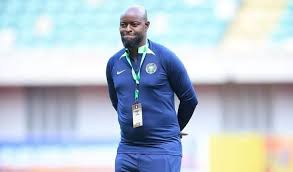A coach in such a sporting industry as football can determine the fate of an entire team. As you visit the terrain of Nigerian football, you will find many coaches whose experience and tactics have brought substantial achievements.
This article shows the 10 best-ranked football coaches in Nigeria and presents their contributions and accomplishments in the field and Knowledge of what these coaches did to the game gives one an idea of how football developed in Nigeria. Not only do their philosophies and management styles make their players perform better, but they also motivate the next generation of players. The stories and statistics are mesmerising, which makes them prominent in such a competitive field, and you will be captivated by them.
When reading about the profiles of these illustrious coaches, you will understand their hard work and expertise. They all have contributed their distinctive stamps to Nigerian football, and their story inspires novice coaches and supporters.
Ranking of the Top 10 Best Football Coaches in Nigeria
These are some of the top-ranking football coaches in Nigeria who have contributed tremendously and have achieved a lot in both club management and national teams:
1. Jose Peseiro – In May 2022 (after agreeing to the deal verbally in December 2021), Jose Peseiro was hired as the Head coach of the Super Eagles of Nigeria, after the team had failed to qualify for the 2022 FIFA World Cup.
During the 22 months, he rejuvenated the team, having led Angola to one of its most significant wins in history of 10=0 in the June 2022 match against Saint Thomas and Principe and qualification in the 2023 Africa Cup of Nations.
Tactically, his view of defensive solidity and a cockroach goalkeeper has seen Nigeria only two goals in making it to the final of the AFCON on February 11, 2024, in Abidjan, Cote d’Ivoire, their first final game since 2013.
Even though they lost to the Ivory Coast, 2 -1, as hosts in the 2024 African games, Peseiro relinquished his job on March 1, 2024, with pride since he had surpassed the target of the Nigerian Football Federation, and restored national enthusiasm in the team

2. Stephen Keshi – Taking the chant to a new level, Stephen Keshi achieved the feat of qualifying the Nigerian national football team, headed by himself as the head coach of the most successful group in the world, the Super Eagles, who won the 2013 Africa Cup of Nations (AFCON) held in South Africa.
Nigeria emerged as third third-time winners of the Africa cup under his leadership after they walloped Burkina Faso 1-0 on February 10, 2013, in the finals at the Soccer City Stadium in Johannesburg.
This victory has now made Keshi the second individual who has ever won the championship as a player (in 1994) and as a coach of the team. In the same year, Keshi led Nigeria to the 2014 FIFA World Cup in Brazil, in which he guided the team to reach the Round of 16 for the first time in a dozen years, since 1998. His rule, which saw strategic discipline and heroic leadership, has been among the most successful reigns in the history of Nigerian football.

3. Samson Siasia – Samson Siasia has played an important role as a coach in the Nigerian football team, especially at the youth and Olympic levels. In 2005, he guided the Nigerian U-20 team, the Flying Eagles, into reaching the final of the FIFA World Youth Championship in the Netherlands, where they lost 2-1 to Argentina. Two years on in 2007, he took the U-23 team to the 2008 Olympics in Beijing again, taking them to the final, only to lose in a tough game against Argentina to end up with a silver medal.
One of his leadership qualities was about the Nigerian teams, whose attacking style and discipline were commended. Siasia also briefly managed the senior Super Eagles in 20102011 and in 2016 but was short lived as the mixed results drove him out of his assignments. However, his record as one of the most prosperous coaches in Nigeria when it comes to youth level is still quite revered.

4. Bora Milutinović – When Bora Milutinovic, the Serbian football coach who was considered an expert in the World Cup, he took charge of the Nigerian national team in 1997, he led them to participate in the FIFA World Cup in the year 1998 in France. It was in his short but powerful stewardship that Milutinovic enabled the Super Eagles to lead Group D following a marvellous 3-2 win over Spain in Nantes on June 13, 1998, and a 1-0 win over Bulgaria some days later. As much as Nigeria did not make it past the Round of 16, having been defeated by Denmark 4:1 in Saint-Denis, Milutinovic led his team to overcome a difficult group and display its skills on the world scene. He made history by becoming the first coach in history to take five nations to the World Cup, with Nigeria as the fourth, having also handled Mexico, Costa Rica, and the United States.

5. Augustine Eguavoen – Augustine Eguavoen has had quite a few accomplishments as the head coach of the Nigerian national team, especially in his interim coach positions. He was named caretaker manager in June 2005 before the 2006 African Cup of Nations in Egypt, where he took the Super Eagles to a creditable third-place finish; it was there they beat Senegal in the bronze medal match.
He came back in June 2010 on a caretaker assignment as well as being in charge of the Nigeria U23 team, but the Olympic qualification of the Nigeria team to the London 2012 games was unsuccessful, which made him quit in December the same year. His latest achievement was in December 2021 when Eguavoen came in again as interim coach to the 2021 AFCON that was hosted by Cameroon (January to February 2022), where Nigeria made it to the Round of 16 only to narrowly lose to Tunisia.
Once again, there was a time in March 2024 when the team took him on again as interim coach and guided the team through early 2025 AFCON qualifiers, winning 3-0 against Benin at the Uyo stadium, followed by a 0-0 draw in Kigali against Rwanda, which left Nigeria atop Group D.

6. Clemens Westerhof – The period that Clemens Westerhof spent as the head coach of the country Nigeria’s national football team between 1989 and 1994 remains one of the most remarkable periods of the football history of the country. On his appointment in 1989, Westerhof transformed the team into a powerhouse in Africa and the world at large as he led the Nigerians to a second-place finish in the 1988 Africa Cup of Nations (AFCON) tournament in Morocco and a third-place finish in the same event in 1992 held in Senegal.
The ultimate pinnacle, however, was in 1994 when he took the Super Eagles to its maiden AFCON victory in Tunisia, beating Zambia 2-1 without conceding a goal to the end of the competition. Later the same year, Nigeria played its first game at the FIFA World Cup in the USA under Westerhof; they had made their debut and went all the way into the round of 16, much to the admiration of the world, which marvelled at their flair and their attacking style. It is during the reign of Westerhof that the golden generation of Nigeria was created, a tactical regime that has combined the discipline and tactics of the formation with the sheer raw talent of talents such as Rashidi Yekini, Jay-Jay Okocha, and Sunday Oliseh.

7. Jo Bonfere – Jo Bonfrere is a Dutch coach who left an enviable legacy with the Nigerian national teams. As an assistant to Clemens Westerhof between 1990-1995, he assisted in leading the Super Eagles to break new ground in winning the 1994 Africa Cup of Nations in Tunisia as well as to its first FIFA World Cup in the USA in 1994.
Raised to the summit of the U-23 team, Bonfrere engineered the miraculous victory of the Nigerian Dream Team in the Atlanta-Georgia Olympic Games of 1996, which beat the heavyweights Brazil and Argentina on the way to winning the first Olympic football medal in Africa.
He came back as senior team boss in December 1999 and led the Super Eagles to the final of the 2000 Africa Cup of Nations that the country (and Ghana) co-hosted but he and his team missed the title after a penalty shoot‑out against Cameroon. These records placed Bonfrere as one of the most dominant and prolific coaches in Nigeria in the international platform.

8. Shuaibu Amodu – Shuaibu Amodu was a very well-respected Nigerian football coach, who has served numerous times the Nigerian national team, Super Eagles and the coach left a mark in the history of stable performance and participatory qualifications. He initially assumed control in 1994, then later in 1999, from 2008 to 2010, and in early 2014. It is worth noting that he led Nigeria to the 3rd position as far as the Africa Cup of Nations (AFCON) was concerned, in 2002 (hosted in Mali) and 2010 (Angola); this has shown that Nigeria had the strength in that region.
Amodu was also lucky enough to qualify Nigeria for the 2002 FIFA World Cup in South Korea and Japan, even though he was controversially sacked shortly before the event. Once again in 2010, he qualified for the World Cup in South Africa, but also fell into the same situation as he was ousted before the finals. Although he never operated the Super Eagles in the World Cup, his contribution to Nigerian football was colossal, and this gave him so much respect for his tactical know-how and coolness in leading.

9. Lars Lagerbäck – Through the seven matches, Lars Lagerbäck, a Swedish national, coached the Nigeria Super Eagles team through, including the group stage of the 2010 FIFA World Cup in South Africa, he registered an unbeaten score of 71.43 percent and a winning percentage of 28.57 percent. Lars Lagerbäck took over in February 2010 on a five-month term as coach, where he led a disciplined and well-prepared side winning plaudits due to his tactical organizing and video-analysing sessions, especially in preparation for their opener against Argentina in Johannesburg on June 12, 2010.
His management also led him to be ranked as the second-best national team coach in the world by IFFHS in 2016, a collective ranking of his work even when in charge of the Nigerian team.

10. Finidi George – Finidi George was officially appointed head coach of the Super Eagles by the Nigeria Football Federation on April 29, 2024, following a stint as interim boss for two March friendlies in Morocco, where he led Nigeria to a 2–1 victory over Ghana (breaking an 18‑year winless streak) and then suffered a 2–0 defeat to Mali
He transitioned from a long-serving assistant (20 months under José Peseiro) into the top job with immediate responsibility to steer World Cup qualifying efforts
His tenure saw Nigeria draw 1–1 with South Africa in Uyo and lose 2–1 to Benin in Abidjan (neutral ground qualifier match in Côte d’Ivoire) during June 2024. After overseeing four matches—one win, one draw, two losses—Finidi resigned on June 15, 2024, ending the shortest spell by any Super Eagles manager to date

The above-listed are the coaches who have made significant impacts on Nigerian football through their leadership and tactical skills, shaping the future of the sport in the country.


